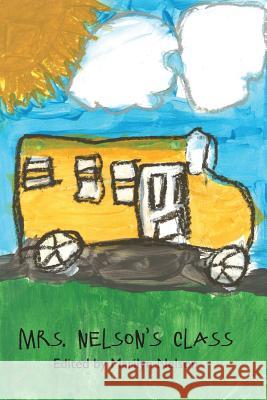Mrs. Nelson's Class » książka
Mrs. Nelson's Class
ISBN-13: 9781937797034 / Angielski / Miękka / 2017 / 76 str.
On May 17, 1954, the U.S. Supreme Court ruled in the case of Brown v. Board of Education of Topeka, Kansas that state-sanctioned segregation of public schools is unconstitutional. In September 1954, in an Air Force base school near Salina, Kansas, young African American teacher Mrs. Johnnie Mitchell Nelson became the teacher of a second grade class of twenty white children. Mrs. Nelson knew, but did her pupils understand they were making history together? Through a class roster of persona poems by poets Doug Anderson, Martha Collins, Alfred Corn, Annie Finch, Helen Frost, Margaret Gibson, Jeanine Hathaway, Andrew Hudgins, Mark Jarman, Peter Johnson, Meg Kearney, Ron Koertge, David Mason, Leslie Monsour, Dinty W. Moore, Marilyn Nelson, LeslEa Newman, Michael Palma, Michael Waters, and Katherine Williams, this anthology presents Mrs. Nelson and her class, imagining how she and her students may have experienced their unique situation.
On May 17, 1954, the U.S. Supreme Court ruled in the case of Brown v. Boardof Education of Topeka, Kansas that state-sanctioned segregation of publicschools is unconstitutional. In September 1954, in an Air Force base school near Salina, Kansas, youngAfrican American teacher Mrs. Johnnie Mitchell Nelson became the teacher ofa second grade class of twenty white children. Mrs. Nelson knew, but did herpupils understand they were making history together? Through a class roster of persona poems by poets Doug Anderson, MarthaCollins, Alfred Corn, Annie Finch, Helen Frost, Margaret Gibson, JeanineHathaway, Andrew Hudgins, Mark Jarman, Peter Johnson, Meg Kearney,Ron Koertge, David Mason, Leslie Monsour, Dinty W. Moore, Marilyn Nelson,Lesléa Newman, Michael Palma, Michael Waters, and Katherine Williams, thisanthology presents Mrs. Nelson and her class, imagining how she and herstudents may have experienced their unique situation.











